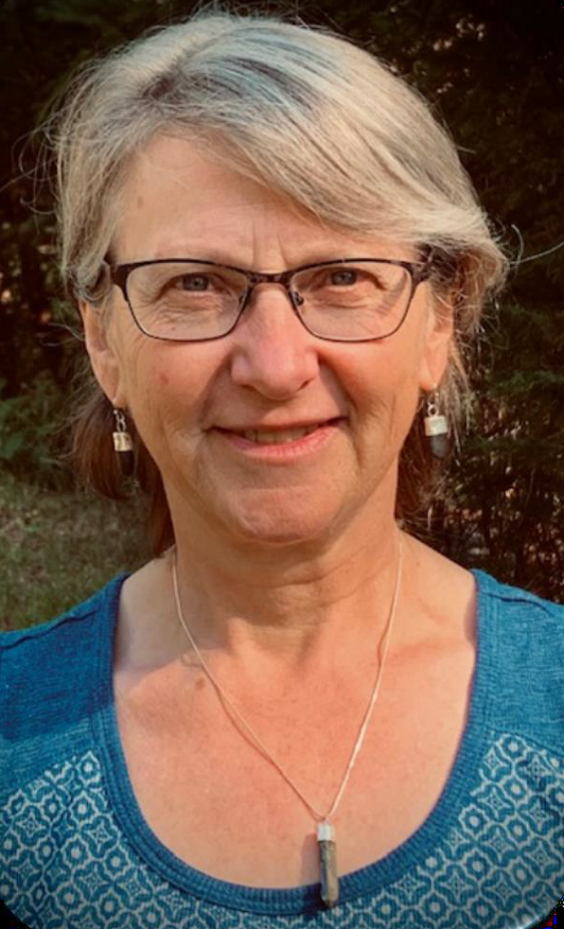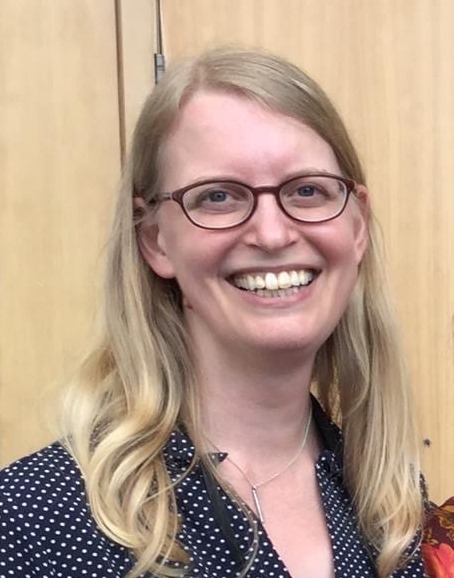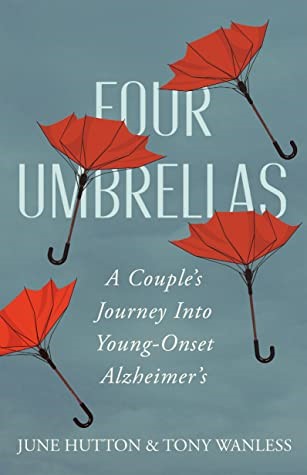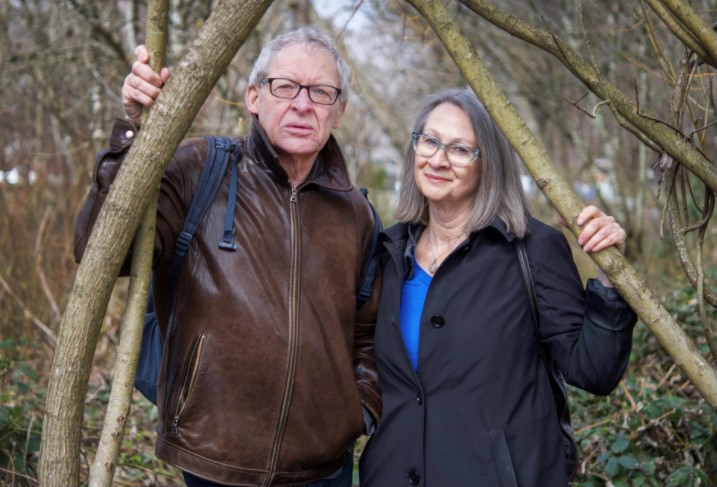September is World Alzheimer’s Month, an occasion to raise awareness about this brain disorder that affects people’s memory, cognition and emotions. Alzheimer’s falls under the category of dementia, an umbrella term for diseases that include vascular, Parkinson’s, and Lewy body dementia. An estimated 50 million people worldwide suffer from dementia of some kind.
In March 2020, during the height of COVID restrictions in BC, June Hutton’s beloved brother died. Hutton, a Vancouver author and editor, cares for her husband of 32 years, writer and former journalist Tony Wanless, who suffers from early-onset dementia.
She writes in the epilogue of their co-written memoir, Four Umbrellas; A Couple’s Journey Into Young- Onset Alzheimer’s
Back home, flowers and cards begin to arrive, the phone rings repeatedly. Each time, Tony asks me, ‘Did someone die?’
More than once I shut the bathroom door to have a cry.
As sad as the passage is, it shows the extent of the couple’s isolation in lockdown, Hutton’s restraint, and her own need for self-care. Mindful self-care and communication are the focus of the eight-week Mindfulness-Based Dementia Care (MBDC) program offered through the Dementia Caregiver Resilience Clinic at St. Paul’s Hospital.
Supporting the caregiver and person with dementia
The clinic helps with the well-being of both the caregiver and the person with dementia through enhanced caregiver confidence and competency. Providence Health Care Geriatric Psychiatrist Dr. Elisabeth Drance and Providence Occupational Therapist Karen Gilbert have worked in the clinic since its inception in 2017.

Along with one-to-one interventions, the team, including Geriatric Psychiatrist Susan More and Social Worker Ele Cavallin, now provides MBDC groups as well as CARERS, a group focused on problem solving and communication skills through simulation of challenging interactions with an actor.
Hutton completed the MBDC program and joined the monthly in-person alumni sessions until COVID restrictions shifted the group to the Zoom platform for weekly meetings in spring 2020.
As it turns out, weekly virtual contact during lockdown for the 20 to 25 alumni participants was a welcome support. It eliminated the travel time for in-person sessions and will be staying online indefinitely.
COVID-19 curtailed access to community supports
“Without access to regular community resources and social supports such as day programs, people’s lives got much smaller and their distress grew. We recognized the need to pivot from monthly to weekly sessions to provide more frequent contact and opportunity for integration of skills,” says Dr. Drance.
Normalizing challenging emotions
Recently, Hutton was rushing to leave home for an appointment, only to discover Wanless had become distracted and hyper-focused on a trivial task, which made them even later. Frustrated, she raised her voice and lost her composure.
She shared her experience with the MBDC alumni group.
“It was wonderful, because I could see them nodding,” she recalls. “Two others joined in with their own memories. There was immediately a triangle of people sharing their experience and the others were all nodding their heads.”
The affirming presence of others, even virtually, “was a way to normalize [these challenging emotions] when we’re not able to be patient,” says Hutton, who co-wrote Four Umbrellas with Wanless in the early stages of his disease. It tells the story of navigating the road that led to an official diagnosis, grieving life plans unfulfilled, and experiencing everyday challenges of caregiving.
Responding, not reacting
While participants receive mutual care and support, Gilbert and Dr. Drance stress the focus is on continued integration of mindful caregiving skills and self-care strategies. By developing self-awareness and communications skills, the MBDC group care partners learn to apply self-compassion and begin to respond — rather than react — in difficult moments.

Gilbert emphasizes that caregivers can gain confidence in their role with a diverse toolkit of coping and calming skills. Caregivers “develop the act of pausing, shifting back into the thinking brain, rather than the reactive brain,” says Dr. Drance.
Micro-practices: Integrating mindful awareness practices into everyday life
Mindfulness Based Dementia Care supports participants as they become more awake to their own needs and the needs of their partners through integrating “micro-practices” into day-to-day life.
Among the most popular is the STOP practice. Dr. Drance explains it involves “taking a pause, taking three conscious slow breaths to activate the parasympathetic nervous system, and then observing. Observing what’s going on in the body, what emotions and thoughts are present, then pausing again, and asking yourself ‘if this is what I’m feeling, what do I need right now?’”
During a challenging experience, dementia care partners learn that distress and resilience can co-exist. With a more robust tool kit, they can navigate the predictable unpredictability of this illness.
Care partners also benefit from learning the ‘self-compassion break’ – a micro-practice developed by American psychologist Dr. Kristin Neff, an expert on self-compassion. “We do the self-compassion break not because we want the suffering to go away, but because we are suffering,” Gilbert adds.
“It’s recognizing that there is difficulty and we’re struggling, and giving ourselves kindness and compassion, just as we would to a dear friend.”

For more information on caring with someone with dementia, click here.
For information on St. Paul’s Hospital’s program, visit this site.





